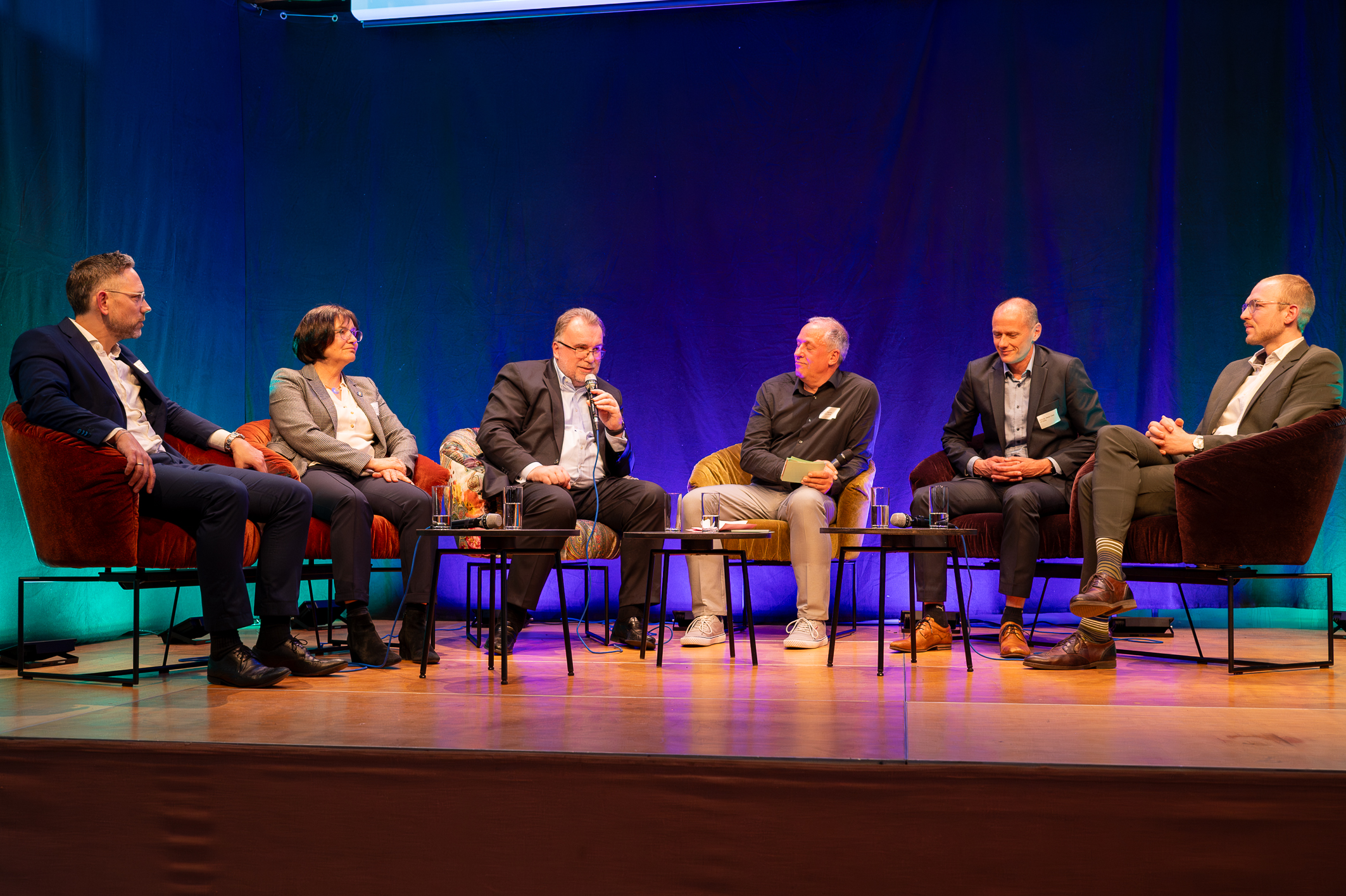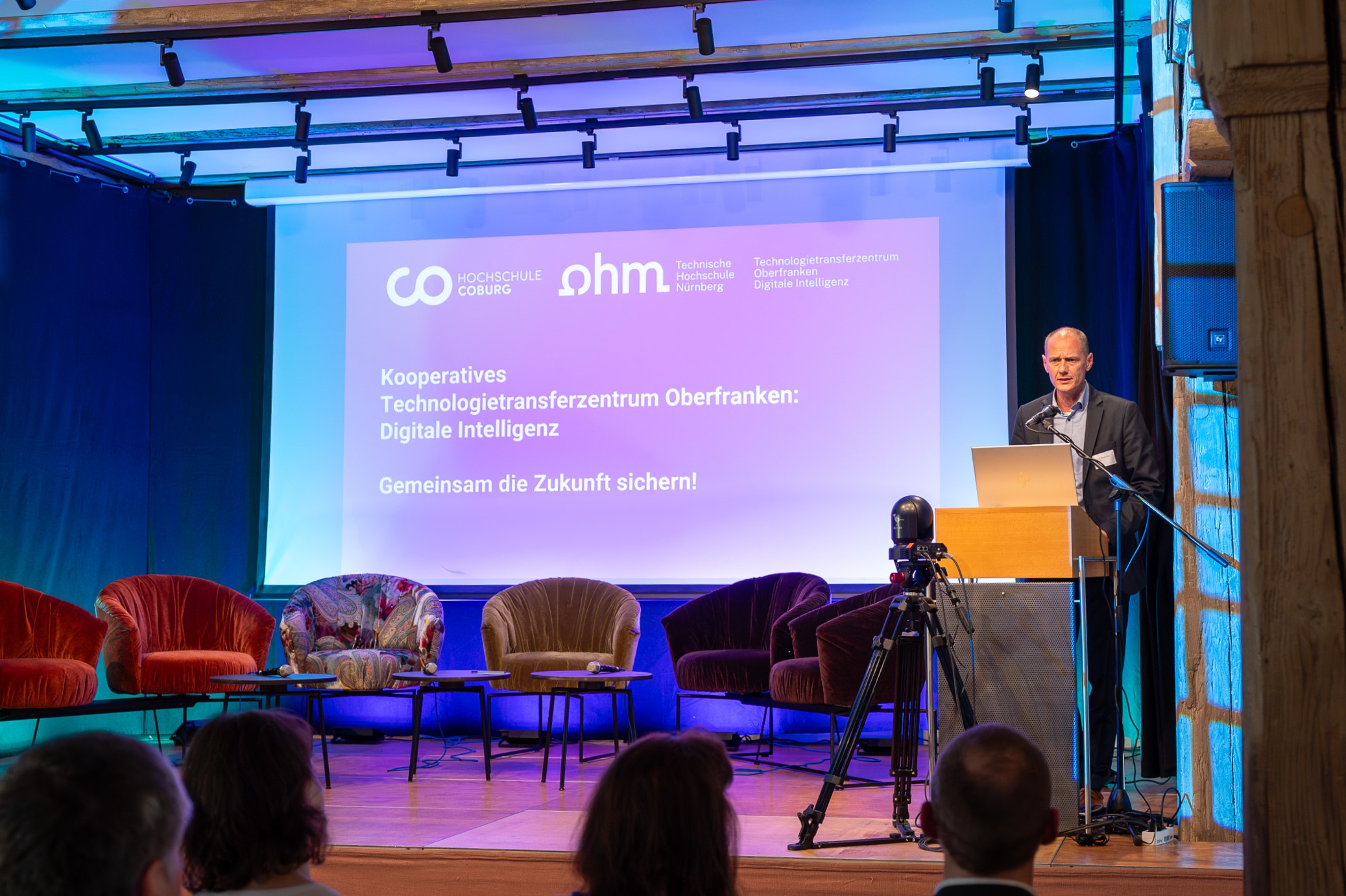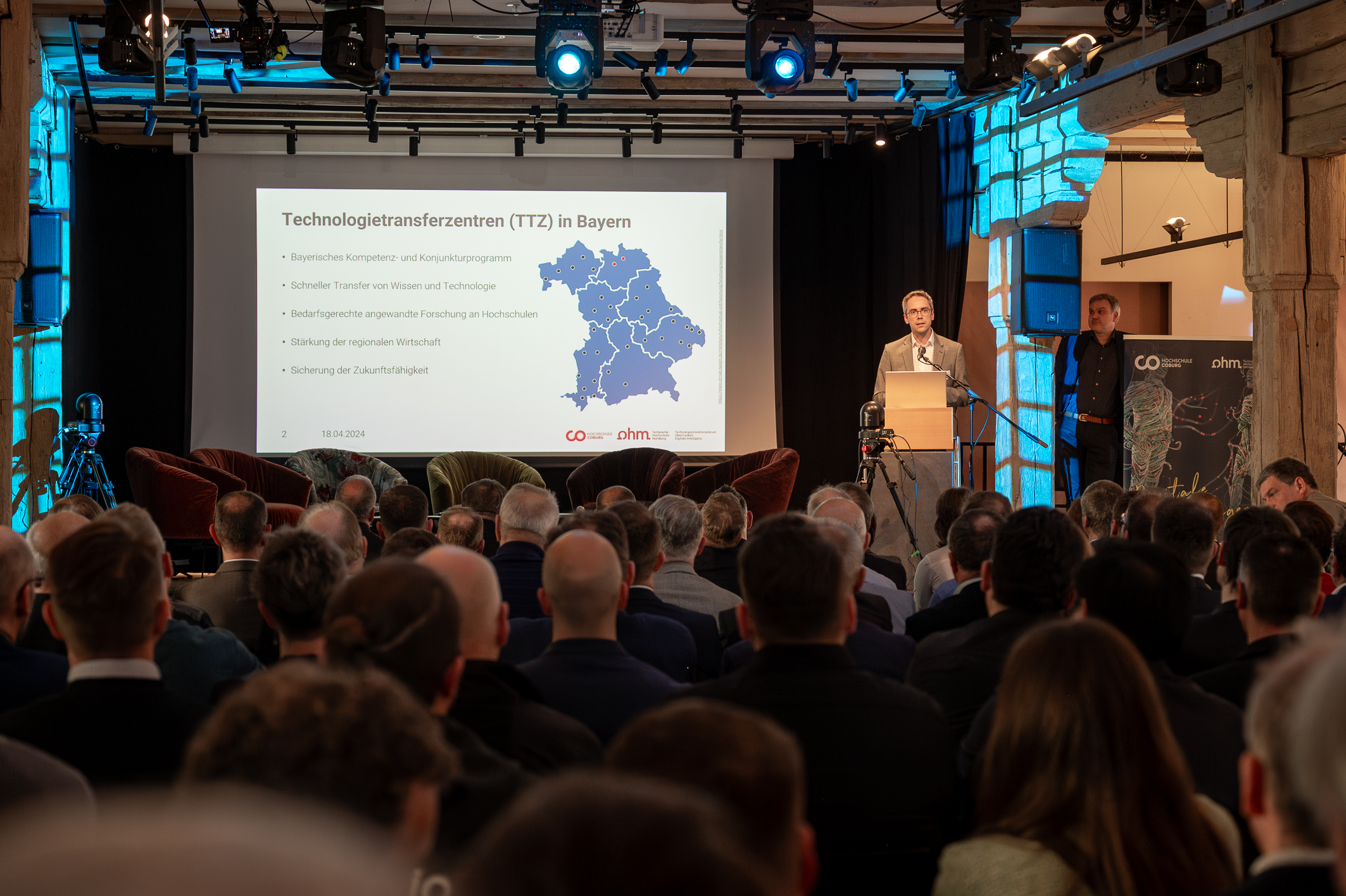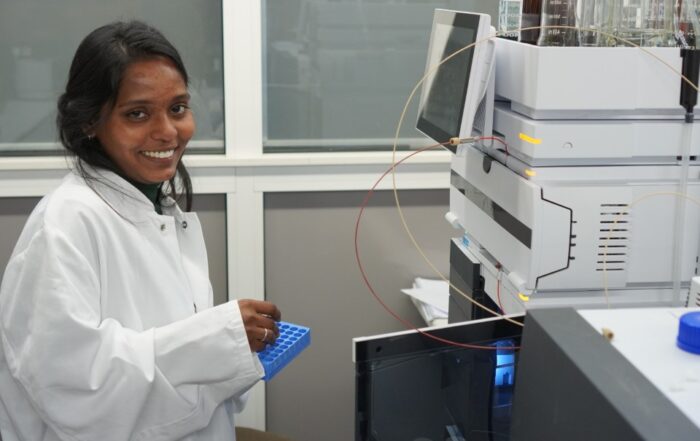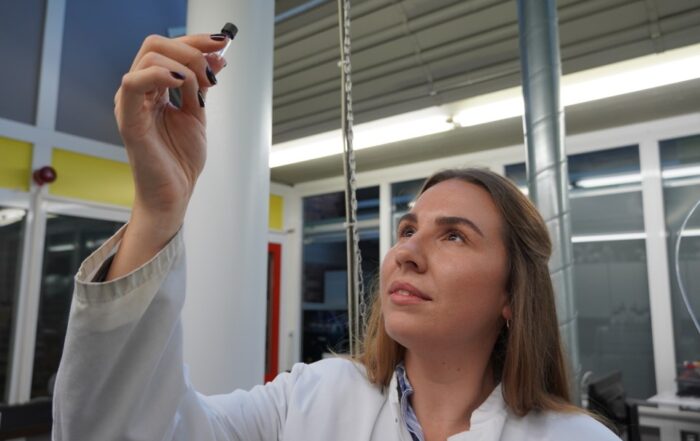25. April '24
Why the Technology Transfer Center Upper Franconia builds a profitable bridge between science and business in the region.
Innovative companies, excellent universities and a high quality of life – Upper Franconia has the best prerequisites to be successful in international competition.
Last week’s presentation of the Upper Franconia Technology Transfer Center (TTZ) at the Lichtenfels City Palace demonstrated the important role played by the networking of business and science.
The high-caliber event brought together representatives from business, science and politics, who made it clear how the economic and demographic challenges can be mastered with clever cooperation, courage and self-confidence.
Frank Carsten Herzog, first Chairman of the FADZ Business Association, emphasized the importance of the Upper Franconia Technology Transfer Center in his welcoming address: “With the TTZ Digital Intelligence, we are ushering in a new era of knowledge transfer in the region. This pioneering project has the potential to further strengthen the competitiveness of the Upper Franconian economy and its innovative companies. It not only enables an exchange of ideas, but also the development of completely new perspectives for companies, society, politics and science.”
Clever combination of skills
In fact, the TTZ fits perfectly into existing structures and offers a clever combination of skills: While Coburg University of Applied Sciences focuses on digital expertise in the product life cycle at its Lichtenfels site, Nuremberg Institute of Technology at its Kronach site is concerned with making artificial intelligence usable for SMEs.
“Whether human-robot collaborations, the use of virtual reality in training courses, AI-supported quality assurance in glass production or the early detection of dementia with the help of speech markers – the variety of research projects and collaborations is immense,” explained Dr. Johannes Schütz, Managing Director of TTZ Oberfranken at the Lichtenfels site.
He illustrated this together with Prof. Dr. Tobias Bocklet, Scientific Director at the Kronach site, using specific examples.
“The Technology Transfer Centre represents the bridge between the academic world and the business world and supports companies in research and development, the implementation of new business ideas and the optimization of existing processes,” added Bocklet.
Venturing into collaborations and research projects
The highlight of the event was the panel discussion with Prof. Dr. Siegfried Russwurm.
Under the moderation of Andreas Renner from Coburg University of Applied Sciences, the BDI President discussed both the challenges and possible solutions for a sustainable Upper Franconian economy with Philipp Steinberger, CEO of Wöhner GmbH, Gisela Raab, Managing Director of Raab Baugesellschaft, Prof. Dr. Stefan Gast, President of Coburg University of Applied Sciences and Johannes Zeck, Managing Director of the FADZ Zweckverband.
“In Upper Franconia, we not only have a strong SME sector with immense innovative strength, but also a high quality of life. We must stand by these strengths and confidently present them to the outside world,” Russwurm made clear.
The German economy’s recipe for success is a mix of large system integrators and those medium-sized technology specialists, of which there are plenty in Upper Franconia.
“There are many disruptive and innovative ideas here. We need to encourage people to develop and drive them forward together. We need to generate the relevant expertise at the universities and turn this knowledge into money. To do this, we need appropriate networking opportunities,” said Russwurm.
Philipp Steinberger, CEO of Wöhner GmbH, emphasized that such networks are already being used successfully.
“Innovation has been the lifeblood of our company for 90 years and we are very happy about the bridges that exist between business and science in the Coburg-Kronach-Lichtenfels region,” explained Steinberger, adding: “We benefit from contact with students and always get fresh ideas here. “I can only advise everyone to be bold and not be afraid of research collaborations. Funding is definitely manageable and once contact has been established, there is always a way to make innovation affordable.”
Creation of qualified jobs
As was also revealed during the panel discussion, the TTZ Upper Franconia has another benefit: the offer of attractive jobs.
“Through sustainable technology transfer, we naturally also want to inspire the next generation for the innovative possibilities,” explained Prof. Dr. Stefan Gast, President of Coburg University of Applied Sciences.
Johannes Zeck from the FADZ Zweckverband agreed: “We can only counter the shortage of skilled workers if we make our region and our economy attractive. In addition to the TTZ, our Machbar future workshop in Lichtenfels is also an important building block for awakening interest in technology and innovation among the general public, especially the younger generation.”
Member of the Bundestag Emmi Zeulner had already made it clear at the beginning that Upper Franconia should by no means hide, by referring to the highest industrial density in Europe and explaining that Upper Franconia has four times as many hidden champions and twice as many patents as the national average.
Gisela Raab, Managing Director of Raab Baugesellschaft, picked up on this thread and added the advantages that rural areas have to offer for SMEs: “The short distances and direct contacts between business, science and politics mean that we can quickly take action here. With the TTZ Oberfranken and the institutions of the FADZ, we have the best conditions to successfully advance our region together.”
About the FADZ trade association
The FADZ Wirtschaftsverband e.V. reflects the entrepreneurial commitment of more than 50 regional member companies from industry and trade, represents their interests and designs formats and projects in the FADZ.
About the FADZ
The aim of the FADZ project, which was launched in 2019, is to establish and operate a research and application center for digital future technologies in Lichtenfels / Upper Franconia.
The project is an association of volunteers, business, science and politics.
More than 50 companies from the region pool their interests in the FADZ Wirtschaftsverband e.V..
Machbar e.V. is the future workshop of the FADZ and offers services for the general public.
The political will of the town and district of Lichtenfels is organized in the FADZ Zweckverband.
The association coordinates the cooperation with the Coburg University of Applied Sciences and the publicly funded conversion of the Kirschbaummühle property. www.fadz.vision


